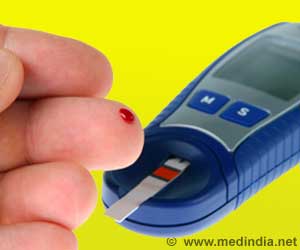Diabetes can be treated by a process called demethylation through which the progenitor cells can be reawakened thereby restoring their capacity to become new insulin producing beta cells.

‘Diabetes can be treated by a process called demethylation through which the progenitor cells can be reawakened thereby restoring their capacity to become new insulin producing beta cells.’
Read More..




In the human body, only liver can regenerate efficiently. Humans have limited capacity to regenerate new cells or tissue after birth as the genes involved in development are switched off which happens by a process called DNA methylation- biological process where chemicals (methyl groups) are written on DNA and modify the way the gene functions.Read More..
DNA methylation can effectively silence genes of progenitor cells (early descendants of stem cells) and thereby the ability for the pancreas to generate the insulin producing β-cells. By using the mouse model, the researchers found that the DNA methylation content of two key developmental genes Ngn3 and Sox 11 were diminished, effectively making them dormant.
However, by a process called demethylation, the progenitor cells can be reawakened thereby restoring their capacity to become new insulin producing beta cells paving the way towards improved treatments for Type 1 and Type 2 diabetes.
Professor El-Osta said, “The collaboration between Dr Keith Al-Hasani and Dr Ishant Khurana has unveiled some surprising results. Their discovery that DNA methylation is a barrier to adult beta-cell regeneration will assist scientists to restore beta-cell function in the pancreas.”
The current therapy focuses on replacing the damaged β-cell mass in diabetic patients consists of whole pancreas or islets transplantation. Although effective, these therapies face the shortage of organ donors together with the associated side effects of immunosuppressive drugs.
Advertisement
Source-Medindia















